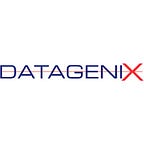Achieving Excellence with Advanced Claims Processing Software
In today’s fast-paced business environment, efficiency is key. For organizations handling claims processing, the need to streamline operations while maintaining accuracy and compliance is paramount. Thankfully, modern claims processing software offers a solution to these challenges. In this comprehensive guide, we’ll explore the myriad benefits of adopting such software, from simplifying complex workflows to accelerating processing times and ultimately, achieving excellence in operations.
- Streamlining Workflows: Manual claims processing is often riddled with inefficiencies and prone to errors. With modern claims processing software, organizations can automate repetitive tasks, such as data entry, validation, and routing. This not only reduces the likelihood of human error but also frees up valuable time for employees to focus on more strategic activities. By streamlining workflows, businesses can significantly improve productivity and turnaround times, leading to enhanced customer satisfaction.
- Enhancing Accuracy: One of the primary concerns in claims processing is maintaining accuracy throughout the entire process. Any discrepancies or errors can lead to delays, rework, and ultimately, dissatisfied customers. Modern claims processing software leverages advanced algorithms and data validation techniques to ensure the accuracy of information entered into the system. Additionally, built-in error detection mechanisms flag potential issues before they escalate, allowing for prompt resolution and minimizing the risk of costly mistakes.
- Improving Compliance: Compliance with regulatory requirements is a non-negotiable aspect of claims processing, particularly in industries such as insurance and healthcare. Failure to adhere to regulatory guidelines can result in severe penalties and reputational damage. Modern claims processing software is designed with built-in compliance features, ensuring that all activities are aligned with relevant regulations and standards. From data privacy laws to industry-specific mandates, the software provides the necessary safeguards to mitigate compliance risks effectively.
- Accelerating Processing Times: Time is of the essence in claims processing, especially when dealing with urgent or time-sensitive matters. Manual processing methods often lead to bottlenecks and delays, hindering the timely resolution of claims. By automating routine tasks and facilitating seamless collaboration among stakeholders, modern claims processing software dramatically accelerates processing times. Whether it’s approving claims, communicating with customers, or generating reports, the software enables swift and efficient execution of tasks, driving operational agility and responsiveness.
- Enhancing Customer Experience: In today’s competitive landscape, delivering exceptional customer experiences is a strategic imperative for businesses. Claims processing plays a crucial role in shaping the overall perception of an organization among its customers. By leveraging modern claims processing software, businesses can offer a seamless and transparent experience to their clients. Real-time status updates, personalized communications, and self-service portals empower customers to track the progress of their claims and receive timely assistance when needed. As a result, customer satisfaction levels soar, fostering long-term loyalty and advocacy.
- Optimizing Resource Allocation: Manual claims processing often requires significant human intervention, leading to higher staffing costs and resource allocation challenges. With modern claims processing software, organizations can optimize resource allocation by automating routine tasks and reallocating manpower to higher-value activities. This not only improves cost efficiency but also enables employees to focus on tasks that require human judgment and expertise. By leveraging the capabilities of the software, businesses can achieve a more balanced and sustainable approach to resource management.
- Facilitating Data-driven Insights: Data is a valuable asset in claims processing, providing insights that can drive strategic decision-making and process improvements. Modern claims processing software is equipped with robust analytics and reporting capabilities, enabling organizations to derive actionable insights from their data. Whether it’s identifying trends, assessing performance metrics, or detecting anomalies, the software empowers users to make informed decisions based on real-time information. By harnessing the power of data-driven insights, businesses can continuously optimize their claims-processing workflows and drive operational excellence.
Conclusion
In conclusion, the adoption of modern claims processing software offers a multitude of benefits for organizations seeking to simplify, accelerate, and excel in their operations. From streamlining workflows and enhancing accuracy to improving compliance and customer experience, the software catalyzes transformative change. By embracing innovation and leveraging technology, businesses can unlock new levels of efficiency, agility, and competitiveness in the ever-evolving landscape of claims processing.
